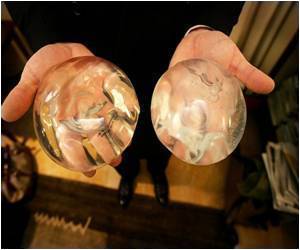The founder of the firm whose faulty breast implants hit the tabloids claims that he had not put anyone's lives at risk.

An estimated 300,000 women in 65 countries are believed to have received the implants made by the firm PIP, which some health authorities say are twice as likely to rupture as other brands.
"Where risk is concerned, I maintain that I did not make (people) take risks", Mas told the courtroom, adding that the gel used in the implants was safe and could have received official approval.
News of the faulty implants in 2011 sparked fears worldwide, but health officials in various countries have said they are not toxic and do not increase the risk of breast cancer.
More than 5,000 women have registered as plaintiffs in the trial in the southern city of Marseille -- which sees the defendants face up to five years in prison -- alleging that the gel poses a health risk.
Marie-Therese Louvet, one of the plaintiffs present at the trial, told AFP on Friday that she had had PIP implants fitted after breast cancer and had to have them hastily removed.
Mas, a former travelling salesman who got his start in the medical business by selling pharmaceuticals, founded PIP in 1991 to take advantage of the booming market for cosmetic implants.
Health authorities later discovered he was saving millions of euros by allegedly using industrial-grade gel in 75 percent of the implants. PIP's implants were banned and the company eventually liquidated.
PIP exported more than 80 percent of its implants, with about half going to Latin America, about a third to other countries in western Europe, some 10 percent to eastern Europe and the rest to the Middle East and Asia.
 MEDINDIA
MEDINDIA


 Email
Email










